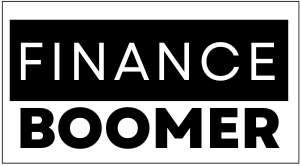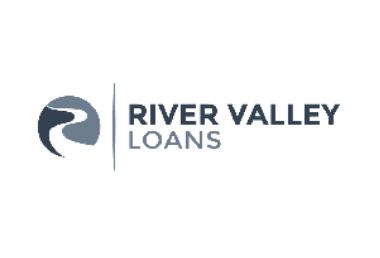Different Types of Business Loans you Should Know in Australia
Are you a business owner looking to start or expand your business and you’re in search of different types of business loans with which you can finance it? Getting a business loan is a viable way to finance your business.
A survey carried out by Forbes shows that business expansion, equipment purchase and marketing activities are the top three reasons business owners obtain loans.
Here are the different Types of business Loans you can consider in Australia:
1. Friends and Family loan
Rather than taking a business loan from the bank, you can ask from family and friends. This is feasible especially if you have well to do family members or friends.
The advantage you get for taking this type of loan is low or no interest, then flexibility in repayments. You also do not need to follow strict formal processes before taking this kind of loan.
2. Business Credit Cards
Business credit card is a credit card to be used by a business rather than for personal uses. It is similar to a business line of credit with slight differences.
With a business credit card, a small business owner in Australia can build their credit profile for easy access to loans.
It is a good way to separate your business and personal expenses as a business owner.
Applying for a business credit card is more easy than other traditional business Loans. You can get a business credit card even without an Employer Identification Number (EIN).
Also Read: How Debt and Equity Investments Differ in Australia
3. Small Business Loans
Getting a small business loan is one of the smartest, and most flexible way to finance a business. This is particularly important if you are living in Australia.
Small business Loans can be used for starting a business, expanding a business, purchasing assets, working capital, etc.
Small business loan may be secured or unsecured.
When it is secured, you need a collateral to apply, while unsecured means no collateral is needed.
4. Business Overdraft
A business overdraft is a specified amount of money a lender or a bank can offer a customer when they run out of money.
It is a kind of agreement that allows you to keep making payments even when you have zero balance in your account. It is a short term funding facility used only when necessary.
A business overdraft is just a form of security or safety net to protect against unavoided expenses when you run out of money. The overdraft amount approved for you depends on your financial standing.
5. Business Term Loans
A business term loan is similar to a personal loan. You borrow a lump sum and you pay back monthly at a fixed interest rate and over a period of time.
The advantage with this kind of loan is that you can get a significant amount of money which can be used to do something tangible like business expansion or equipment purchase. You are very clear on amount to be repaid monthly and till when.
Repayment is typically made in installments over three to five years.
Also Read: 7 Benefits of Managing Your Finances as a Student in Australia
6. Unsecured Business loans
Unsecured business loans do not require a collateral. The interest rates are often higher than for other loans. The application process is usually fast. The advantage there is that you do not stand a risk of losing any property.
Lenders are selective of who they give unsecured loans to because of the high risk since no collateral is involved.
7. Invoice Financing
Invoice Financing is a form of business loan you can take if you are in Australia in which you can borrow money against amount due from your customers.
With invoice Financing, you continue operations and improve your cash flow while waiting for your customers to repay their balance.
This is a suitable type for large businesses that sells goods or services on credits. Simply put, your unpaid invoices are used as a collateral for getting a loan.
8. Merchant Cash Advance
This is an unconventional form of business loan in which you receive a lump sum payment based on future credit or debit card sales. It is good for business with a good sales history.
As a business owner who sells products with credit or debit cards, if you see a dip in sales, you can get a merchant cash advance to help you for the time being.
Merchant Cash Advances has one of the highest approval rate compared to other business loans. Even businesses with bad credit can get it.
It can help cover seasonal short-term cash shortages. But if you are not careful, it can further lead you to a cycle of debt.
9. Business Line of Credit
According to the British Business Bank, a business line of credit is a flexible loan for business of all sizes.
It allows you to take business Loans and repay them as you need within an agreed amount( credit limit). It could be a secured where you need a collateral or unsecured loan where you do not need any collateral.
The advantage with business line of credit is that you have access to money anytime you need provided it is within your credit limit.
10. Revenue-Based Financing
This type of Financing is common with entrepreneurs and small startups. It entails seeking investors to raise capital for a business.
These investors raise the capital needed and they in turn are promised a percentage of the future revenue to be generated from the business.
You need a solid business plan, concrete financial documents and readiness to pitch investors for revenue-based financing companies to be interested in your business.
Conclusion
We have considered the different Types of business loan available for business owners in Australia.
Friends or family loans, business credit cards, business overdraft, business term loans, unsecured business loan, invoice financing, merchant cash advance, business line of credit and revenue based financing are different types of loan you should know.
Consider the advantages disadvantages and ease of access to each type and decide the best for your business.
FAQs
What is a small business loan in Australia?
A small business loan in Australia is a type of financing designed specifically for small-to-medium enterprises (SMEs). These loans provide capital for various business purposes, such as expanding operations, managing cash flow, or covering unexpected expenses.
Please note: The amount lent to you can vary as well as the loan term (the period in which you repay the loan), interest rate, interest rate type (fixed or variable), fees and security.
Can I borrow money from my business Australia?
Yes, it is possible to borrow money from your business in Australia. This type of loan is known as a shareholder loan or Division 7A loan. It allows directors and shareholders to borrow money from the company, which can be advantageous in certain situations. However, there are specific rules and tax implications to consider when taking out such a loans.
It is crucial to consult with a professional to ensure compliance with tax laws and to determine if this type of loan is suitable for your business needs.
How much can I borrow for a business loan in Australia?
You can borrow up to 80% for unsecured loans while you can borrow higher amounts for secured lending.
Typically with unsecured business loans you’re going to be able to borrow up to 80% of free cash flow (what’s left after all your bills are paid). With secured lending over a longer term you will be able to borrow greater sums of money especially if you securitize the business loan against your home or other assets.
The amount you can borrow for a business loan in Australia depends on several factors, including your business’s revenue, expenses, credit score, assets, and liabilities.
Is it hard to get a business loan in Australia?
Getting a business loan in Australia can be challenging, but not impossible.
Here are some key points about the difficulty of obtaining a business loan:
Eligibility Criteria: Lenders have specific eligibility criteria that businesses must meet, such as minimum trading history, turnover, credit score, and collateral requirements. Meeting these criteria can be difficult for new or small businesses.
Collateral Requirements: Many business loans require collateral, such as property or equipment, which can be a barrier for businesses without significant assets.
Credit Score: Having a good credit score is essential for getting approved for a business loan. Businesses with poor credit scores may find it harder to secure financing.
Paperwork and Documentation: Applying for a business loan often requires extensive paperwork and documentation, including financial statements, business plans, and tax returns. Gathering and submitting this information can be time-consuming and challenging for some businesses.
Rejection Rates: According to the DFA SME Report, banks in Australia reject 74% of small businesses that apply for traditional term loans.
Alternatives to Bank Loans: Businesses that struggle to obtain a bank loan may consider alternative financing options, such as online business loans, equipment financing, or invoice financing. These alternatives often have less stringent eligibility criteria but may have higher interest rates or fees.
Perseverance: Despite the challenges, many businesses in Australia are able to secure business loans by persistently applying to multiple lenders, improving their financial profile, and exploring alternative financing options.
In summary, while getting a business loan in Australia can be difficult, especially for new or small businesses, it is not impossible. Businesses should carefully research their options, meet eligibility criteria, and be prepared to provide extensive documentation to increase their chances of securing financing.
How much deposit do I need for a business loan in Australia?
This ranges between 10% and 30% of the full value of the loan.
To determine the deposit required for a business loan in Australia, it typically ranges between 10% and 30% of the full value of the loan. The specific deposit amount can vary based on factors such as the type of loan, whether it is secured or unsecured, and the lender’s requirements. Securing a loan against valuable assets like property can reduce the deposit amount needed, while unsecured loans may require a larger deposit or no deposit at all.
It’s essential to consider your business’s financial situation, creditworthiness, and the purpose of the loan when determining the deposit amount for a business loan in Australia.
How long are business loans Australia?
Business loans in Australia can vary significantly in terms of their length, depending on the type of loan and the lender.
Here are some key points about the duration of business loans in Australia:
Short-term loans: These loans typically have repayment periods ranging from a few weeks to 18 months. They are often used for short-term cash flow needs or to cover unexpected expenses.
Long-term loans: Long-term loans can stretch from 1 to 30 years, depending on the lender and the specific loan terms. These loans are often used for larger, more significant business investments or for long-term financial planning.
Variable repayment periods: The repayment schedule can also vary depending on the loan and the lender. For example, daily repayments might reduce the term of the loan compared to monthly repayments.
Traditional lenders: Traditional lenders, such as banks, typically provide longer repayment periods than online lenders. However, they often have more restrictive terms and conditions.
Online lenders: Online lenders are generally more flexible with their repayment terms and can offer shorter repayment periods.
Maximum term: The maximum term for a business loan in Australia can vary depending on the lender and the specific loan terms. For example, short-term loans can run for a maximum of 18 months, while long-term loans can stretch up to 30 years.
Credit score:
A good credit score can often result in longer repayment periods and more favorable loan terms.
Collateral: Providing collateral can also influence the loan term. Secured loans may have longer repayment periods compared to unsecured loans.
Loan purposes: The purpose of the loan can also impact the repayment period. For example, a loan for a specific project or expansion might have a shorter repayment period compared to a loan for general business operations.
Lender discretion: The lender may consider various factors, including the business’s financial situation, creditworthiness, and cash flow, when determining the loan term. This can result in different repayment periods for the same loan from different lenders.
In summary, business loans in Australia can have repayment periods ranging from a few weeks to 30 years, depending on the type of loan, lender, and specific loan terms. It is essential to carefully consider these factors when selecting a business loan to ensure that the repayment period aligns with your business needs and financial situation.
How much are most small business loans?
Most small business loans in Australia range from $5,000 to $500,000, with some lenders offering higher amounts up to $1 million or more.
Specifically:
- Unsecured business loans typically have a maximum borrowing limit of around $500,000, with amounts as low as $5,000 available.
- Secured business loans, where collateral such as property or valuable equipment is provided, can open up loans in the millions of dollars.
- NAB offers business loans starting from $5,000 up to $250,000 for unsecured loans, and $20,000 for secured loans.
- Loans of $10,000 to $500,000 are most common with small businesses across Australia.
| Lender | Average small business loan amount |
|---|---|
| SBA 7(a) loans | $479,685 |
| Online loans | $5,000 to $500,000 |
| Short-term loans | $5,000 to $750,000 |
| Business line of credit | Up to $1 million |
The exact loan amount depends on factors such as the business’s annual revenue, creditworthiness, existing debts, the type of financing, and the chosen lender. Lenders generally provide loans up to 10% to 30% of a business’s annual revenue to ensure repayment ability.
In summary, while small business loans can range from a few thousand dollars to over a million, the most common loan amounts fall between $10,000 to $500,000 for the majority of small businesses in Australia.
How long does it take to open a business bank account in Australia?
Opening a business bank account in Australia typically takes a few minutes to a few days.
Here are the key points:
- Online Application: The initial application process usually takes only a few minutes to complete online.
- Verification Checks: After submitting the application, the bank or provider will conduct verification checks on your business and personal information. This may take a day or two.
- Document Submission: You may need to submit additional documents, such as identification and business registration details, which can be done online or at a branch.
- Branch Visit: In some cases, you might need to visit a branch to submit your identification documents or complete the verification process.
- Account Activation: Once your account is verified, you can activate it and start using it for your business transactions.
Overall, the process of opening a business bank account in Australia can take anywhere from a few minutes to a few days, depending on the complexity of the application and the verification process.
How much does it cost to open a business account in Australia?
The cost is $10 and sometimes completely free.
The cost to open a business bank account in Australia varies depending on the bank and type of account, but generally falls into the following ranges:
Setup Fee: Most banks offer free setup with no initial deposit required.
Monthly Fee:
- Online-only transaction accounts often have no monthly fee.
- Accounts requiring branch assistance typically cost around AUD 10 per month.
- Some banks offer a choice between a no-monthly-fee account with pay-per-transaction fees, or a monthly fee account with a number of free transactions included.
Transaction Fees:
- In-branch assisted transactions cost AUD 2.50 – AUD 5 per transaction.
- Cheque or quick cash deposits cost AUD 5 – AUD 10.
- Cheque processing fees are AUD 0.60 – AUD 1.
- ATM fees are free for local ATMs, and AUD 2 – AUD 3 for international ATMs.
International Transaction Fees:
- AUD 20 – AUD 32 or 3% – 5% of the transaction amount.
So in summary, while setup is usually free, ongoing costs can vary significantly based on the account type and usage. Online-only accounts with pay-per-transaction fees tend to be the most cost-effective option for businesses with lower transaction volumes. Accounts with monthly fees provide a bundle of free transactions but may be more expensive overall for high-volume businesses.
Online business loans
Online business loans in Australia typically offer quick and convenient access to funds for small to medium-sized businesses.
Here are some key points about online business loans in Australia:
Quick Application Process: Online business loans often have a streamlined application process that can be completed in a few minutes to a few hours, depending on the lender.
Fast Approval and Funding: Once approved, funds can be disbursed within a day or two, making them ideal for businesses with urgent cash flow needs.
Flexible Repayment Terms: Online business loans usually offer flexible repayment terms, such as weekly, fortnightly, or monthly repayments, to suit the business’s cash flow.
No Collateral Required: Many online business loans are unsecured, meaning no collateral is required to secure the loan.
Higher Interest Rates: Online business loans often have higher interest rates compared to traditional bank loans due to the reduced risk and faster application process.
Higher Interest Rates:
Online business loans often have higher interest rates compared to traditional bank loans due to the reduced risk and faster application process.
Lender Options: There are several online lenders in Australia offering business loans, such as Moula, NAB, and Access Bank, each with their own terms and conditions.
Credit Score: A good credit score can improve the chances of approval and better loan terms.
Business Size and Type: Online business loans are generally suitable for small to medium-sized businesses, but some lenders may cater to larger businesses as well.
Loan Amounts: Online business loans can range from a few thousand dollars to several hundred thousand dollars, depending on the lender and the business’s needs.
Digital Platforms: Online business loans are typically accessed through digital platforms, making it easy to apply and manage the loan from anywhere.
Overall, online business loans in Australia offer a convenient and fast way for businesses to access funds, but it is essential to carefully review the terms and conditions before applying.
Read Also: Understanding How Merchant Cash Advance Loans Work in Australia













